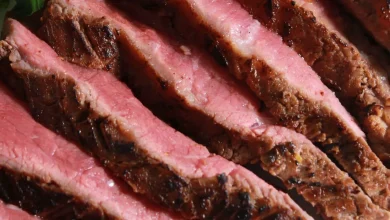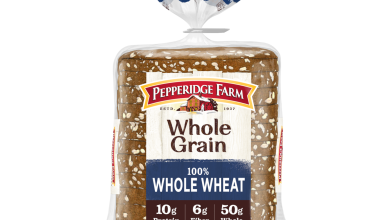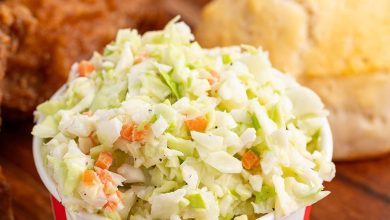Healthy Canned Tuna in Water: Nutrition, Benefits & Easy Recipe Ideas
Tuna Fish (Light, Canned in Water, Drained) – Nutritional Information & Details
Tuna fish, when canned in water and drained, offers a lean, protein-packed option that is not only delicious but also incredibly nutritious. It’s a versatile ingredient that can be incorporated into a wide range of recipes, from light salads to hearty casseroles or pasta dishes. Below is a detailed breakdown of its nutritional profile, highlighting its impressive benefits, especially for those seeking a low-fat, high-protein food option.
Nutritional Information (Per 100g)
| Nutrient | Amount |
|---|---|
| Energy | 86 kcal |
| Protein | 19.44 g |
| Total Fat | 0.96 g |
| Saturated Fat | 0.211 g |
| Carbohydrates | 0.0 g |
| Fiber | 0.0 g |
| Sugars | 0.0 g |
| Calcium | 17 mg |
| Iron | 1.63 mg |
| Magnesium | 23 mg |
| Phosphorus | 139 mg |
| Potassium | 179 mg |
| Sodium | 247 mg |
| Zinc | 0.69 mg |
| Copper | 0.05 mcg |
| Manganese | 0.019 mg |
| Selenium | 70.6 mcg |
| Vitamin C | 0.0 mg |
| Thiamin (Vitamin B1) | 0.03 mg |
| Riboflavin (Vitamin B2) | 0.084 mg |
| Niacin (Vitamin B3) | 10.136 mg |
| Vitamin B6 | 0.319 mg |
| Folate (Vitamin B9) | 4.0 mcg |
| Vitamin B12 | 2.55 mcg |
| Vitamin A | 17.0 mcg |
| Vitamin E | 0.33 mg |
| Vitamin D2 | 1.2 mcg |
Health Benefits & Key Nutrients
Tuna is widely regarded for its high protein content, making it an excellent choice for muscle repair and growth. A 100g serving of canned light tuna in water contains a substantial 19.44g of protein, which is essential for maintaining healthy muscles, tissues, and organs.
This fish is incredibly low in total fat, with only 0.96g of fat per serving, of which only a fraction (0.211g) is saturated fat. This makes it a heart-healthy protein choice, ideal for those following low-fat or weight-conscious diets. Furthermore, it has zero carbohydrates and no sugars or fiber, making it a perfect option for those following a ketogenic or low-carb diet.
Tuna is also a rich source of essential minerals, including phosphorus (139 mg) and magnesium (23 mg), both of which are crucial for maintaining healthy bones and teeth. The sodium content (247 mg) should be considered, especially by those who need to monitor salt intake due to conditions like hypertension.
This canned tuna is packed with B vitamins, including vitamin B12 (2.55 mcg), niacin (10.136 mg), and vitamin B6 (0.319 mg), all of which are vital for energy production, brain function, and red blood cell formation. Vitamin D (1.2 mcg) is also present, promoting calcium absorption and bone health.
Moreover, selenium (70.6 mcg) is another significant nutrient found in tuna, known for its antioxidant properties that help to protect cells from oxidative stress and support immune function.
Allergen Information
Tuna, being a fish, is a known allergen and should be avoided by individuals with fish allergies. Always check for cross-contamination risks, particularly in food preparation areas or when purchasing pre-packaged goods.
Dietary Preferences
- Gluten-Free: Tuna is naturally gluten-free, making it a suitable choice for those with gluten intolerance or celiac disease.
- Low-Fat & Low-Carb: With minimal fat and no carbohydrates, it fits well into low-fat, low-carb, and ketogenic diets.
- High-Protein: Its high protein content makes it an excellent choice for bodybuilders, athletes, or anyone looking to maintain a high-protein diet.
- Paleo & Whole30: Tuna is compliant with paleo and Whole30 diets, providing lean protein without the use of processed ingredients or grains.
- Dairy-Free: This ingredient contains no dairy, making it suitable for those following a dairy-free diet.
Storage & Usage Tips
Canned tuna in water has a long shelf life, typically lasting up to 2-5 years from the date of purchase if stored in a cool, dry place. Once opened, it should be transferred to an airtight container and refrigerated for no more than 3-4 days.
Tuna is incredibly versatile and can be used in a variety of dishes such as tuna salads, casseroles, sandwiches, wraps, or even as a topping for pizzas and pasta dishes. For a simple yet satisfying meal, mix it with a bit of olive oil, lemon juice, and fresh herbs, and enjoy it as a light lunch or dinner.
Conclusion
Tuna (light, canned in water) is an affordable, nutritious, and convenient ingredient that packs a punch in terms of protein content while being low in fat and carbohydrates. Whether you’re looking for a lean source of protein for your workout recovery or just a healthy, quick meal, canned tuna is a reliable choice. With its abundant essential vitamins and minerals, tuna can easily be incorporated into various dietary preferences, making it a versatile addition to any meal plan. Always remember to enjoy it as part of a balanced diet and explore its full culinary potential.








